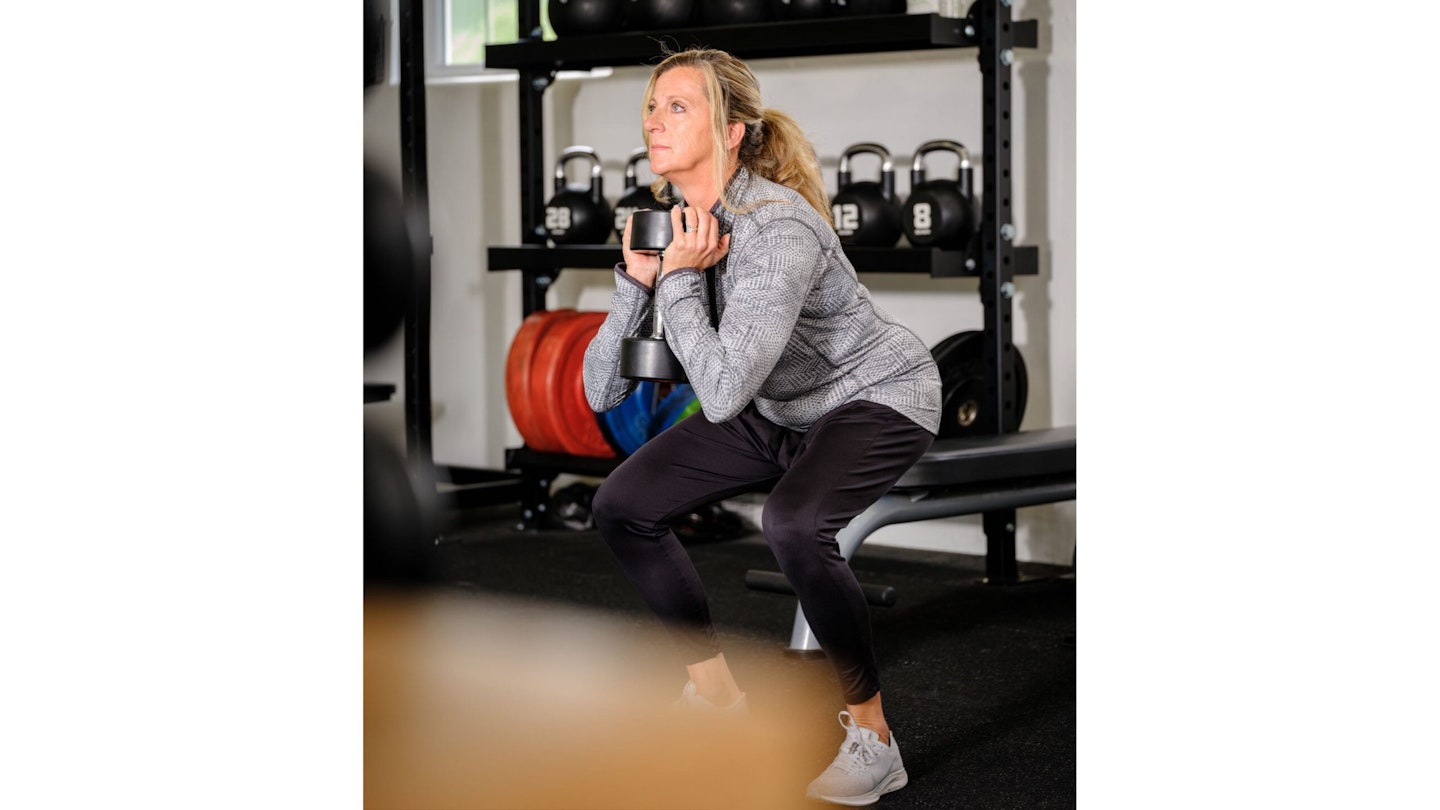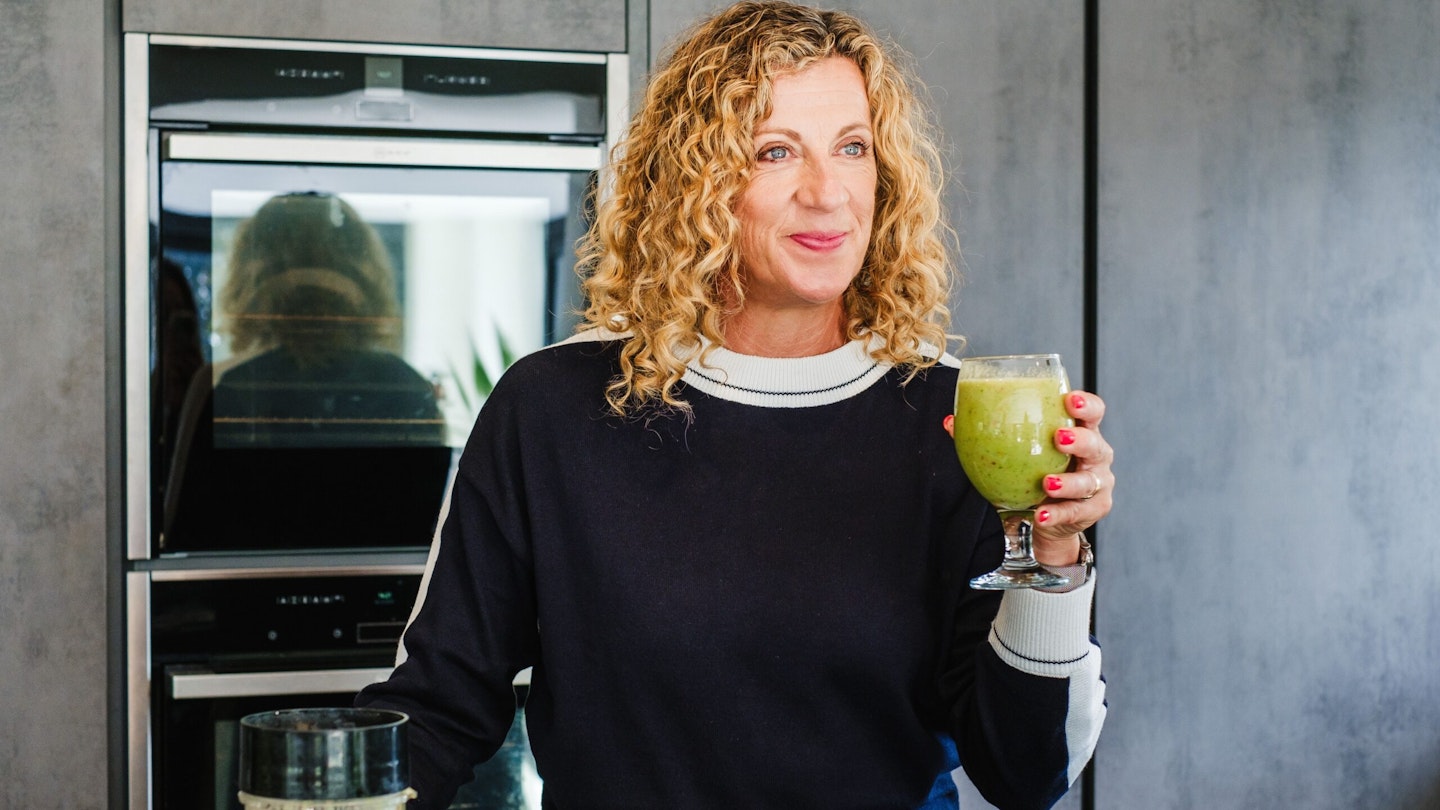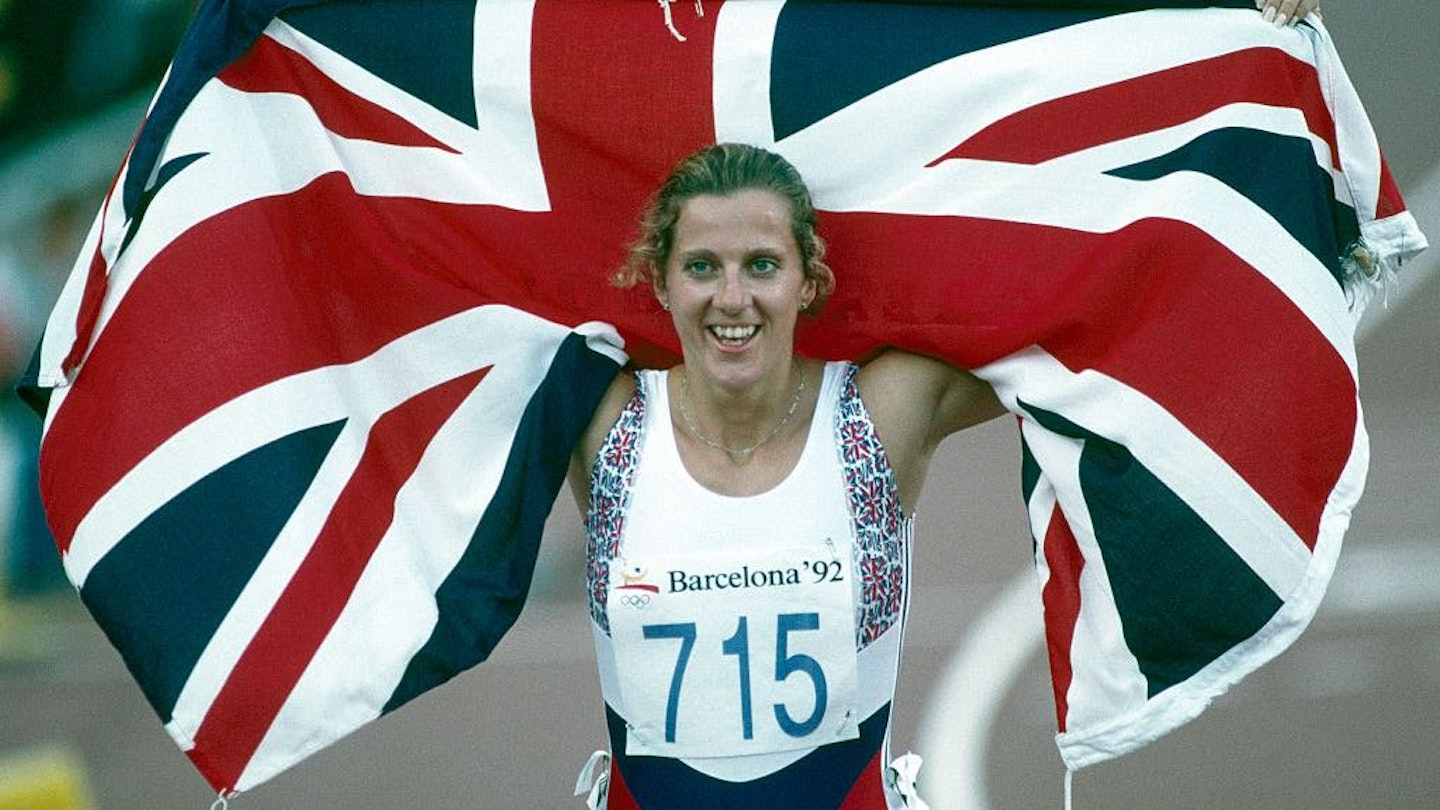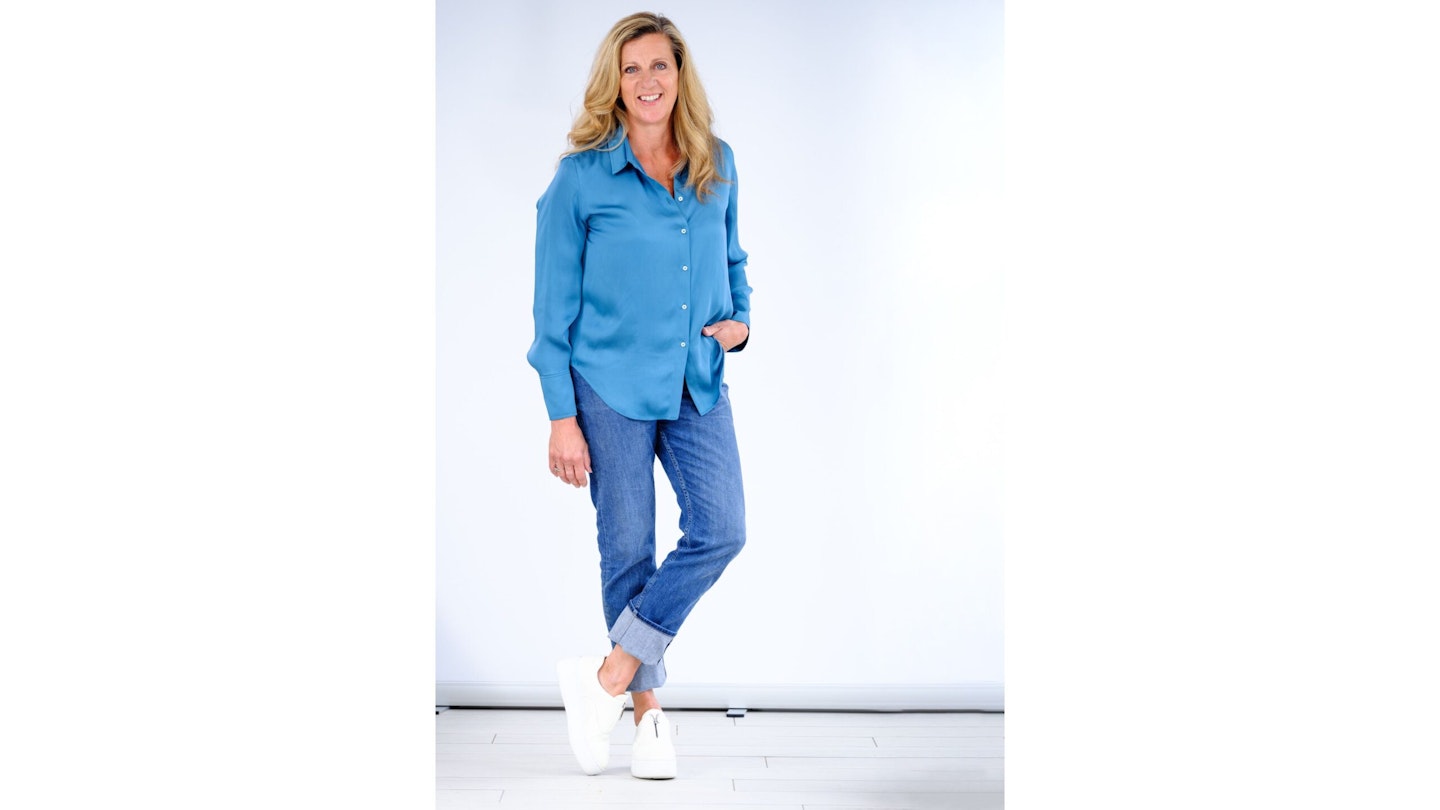From Olympic gold to managing menopause: Sally Gunnell shares her journey of staying strong, active and unstoppable.
“I know what exercise can do for my mental health,” Sally Gunnell says, “and how it supports me every day.”
Gunnell is one of Britain’s best-loved athletes. She won gold in the 1992 Olympics and was the first 400 metre hurdler to hold the Olympic, World, European and Commonwealth titles simultaneously. Now 58, and with her competing days behind her, she is still inspiring women everywhere by opening up discussion around menopause, including how she’s managed her own symptoms and how her journey through this time of life has differed to that of her mother.
For many women, menopause is a life stage that comes with unique physical and emotional challenges. Yet despite its inevitability, menopause often arrives with more questions than answers, and until recently, it has rarely been an open topic of conversation.
Discovering new limits
“I had no idea what was happening,” Gunnell says, describing the unexpected symptoms that caught her off guard as menopause set in. “My body started changing, I felt tired, achy, and anxious, which wasn't normal for me.
I guess through sport you have a real understanding of your body. I had to learn when to push my body, when to relax, and all of those sorts of things. And then going into menopause I was wondering why my bones were aching, wondering why I was getting all sorts of these sort of symptoms, and I just had no knowledge of it.
And it was quite scary, because I wasn't training anywhere near like I used to, but it was still an important part of my life, and I couldn't do what I wanted to do.”
Realising that menopause was the cause of her symptoms, Gunnell set out to understand this phase of life. “The conversations we’ve had in recent years have helped answer so many questions,” she notes. Through her journey, she discovered that exercise and nutrition remained incredibly beneficial, but that adjustments were necessary.

A different approach to exercise
Although menopause may make things more challenging due to symptoms, it’s more important than ever to keep some kind of fitness regime – not as a punishment, but as a way to support physical and mental wellbeing. As Gunnell has discovered, that might mean a different approach than you’re used to.
“I didn’t want it to slow me down. I’m still active,” she says, “but I’ve had to adapt my exercise as I’ve aged. It’s about consistency now rather than intensity.” While the focus obviously used to be on running and training for hurdles, she now incorporates strength training three to four times a week, a noticeable shift from her previous focus on cardio and endurance.
Strength training plays a crucial role in maintaining muscle mass and bone density, which otherwise decline during menopause. It can take many forms, using dumbbells, resistance bands or bodyweight, and the NHS recommends we include strength-based exercises at least twice a week.
For Gunnell, strength training has brought more benefits, such as improved energy levels, better posture, and a positive effect on her mental health. “Strength training makes me feel strong, and that’s important,” she says. “I know what exercise can do for my mental health, and how it supports me every day.”
The balance of consistency and sustainability that Gunnell aims for is a great reminder that exercise isn’t about pushing to the max, but about increasing longevity and wellness through movement.
While cardio is still part of her routine, she’s less driven by high-intensity workouts. “I keep my heart healthy, but I don’t push myself the way I used to,” she shares. Instead, she focuses on keeping her body moving each day, even if it’s just a light walk.
“I still run and I still bike ride, but I think recovery is a really important part of exercise as we age as well. That's quite a hard thing to bring into my life, because I’m all go, so recovery for me looks like some breath work, some yoga – some little ‘me times’ as I call them.”

Nutrition for body and mind
A common issue for women in menopause is weight gain. In part, this is due to a decrease in metabolism, but it’s worsened by issues such as aching joints, which makes it tricky to find the motivation to exercise and eat well.
Gunnell is open and honest about her own difficulties in this area, noting how she has prioritised protein and minimised processed foods.
“It’s easy to gain weight now, and I’ve realised that my choices affect my energy and mood,” she says. But balanced nutrition doesn’t mean restrictive diets; it’s about choosing foods that support physical and mental health.
“It’s about trying to eat from scratch every day. Focusing on protein much more, trying to stop the bad snacking and to replace that with good things.
I don't cut everything out, but I don't eat the whole packet of biscuits like I might have done a few years ago, or a whole bar of chocolate. I've tried to educate myself and say it's okay to have two pieces of chocolate tonight and a glass of wine, but just don't do it every single night and all day.”
Gunnell also points out, quite rightly, that when you’re not feeling yourself, you don’t want to necessarily eat well, and when you don’t eat well, you don’t feel great, and so the cycle continues. Addressing other menopausal symptoms, such as disrupted sleep, has also been key.
“It’s understanding that it’s not just that your hormones are changing. You can be putting on weight because you’re not sleeping well, so you're feeling anxious, then you snack a little bit more. Maybe there's some days that I don't exercise how I should, or there might be two or three days… it's just understanding how all these pieces fit together.”
Self-compassion has become a guiding force. “We can have bad days—what I call ‘red days’—and that’s okay,” she says. On those days, she allows herself to rest, knowing that she’ll be back to her routine the following day. This mindset has been crucial in preventing burnout and allowing her to continue exercising and eating well consistently.

HRT and other support
Alongside lifestyle changes, Gunnell has turned to hormone replacement therapy (HRT) to alleviate specific symptoms. “I was feeling anxious and having hot flushes,” she shares, explaining that HRT has helped her manage these symptoms and feel more like herself.
But she’s quick to emphasise that HRT isn’t a standalone solution. “I’ve learned to rely on other things too such as keeping the bedroom cool at night, breathing exercises, and exercise.”
This holistic approach, she believes, is the key to navigating menopause with confidence. It’s about building a solid foundation where every piece supports her well-being, both physically and mentally.
Breaking the menopause taboo
Gunnell is passionate about raising awareness and breaking down the stigma around menopause, which is why she is helping to promote the MTick campaign from GenM, ensuring women can shop for menopause products with confidence, knowing they will help with menopause symptoms.
Similar to the vegan ‘V’ we see on so many products now, GenM hope the MTick will become a universally recognised symbol, with many brands and retailers already signing up for the scheme.
“When it comes to things like supplements, it's such a big market, and you just haven’t got a clue,” Gunnell says, noting how helpful it would be to pick up a supplement, see the MTick and know it was suitable for menopause symptoms.
“I think having something like the MTick is great because also, I was quite shocked about all the stuff that does help. There's so much, that you would never think of that could help – and that’s a big part of this. Adding to your knowledge – not just for you but for the people around you as well.”

Gunnell’s passion for menopause awareness stems from her own experience with menopause, as well as her mother’s.
“I think I knew my mum was going through menopause, but we didn't talk about it,” she explains. “My mum was really affected by it, but it was put down to mental health rather than the menopause. She’s 92 now – I was talking to her the other day, and I said you probably had really rough few years because of your menopause, but we just didn't know then. It’s quite scary, really, what you put up with. And I don't want other people to do that.”
Gunnell is also a mother to three sons, and her husband is former athlete and coach Jonathan Bigg. She’s making sure they’re well-versed in all aspects of female health, too.
“We need to educate our sons,” she says. “My husband knows everything around athletes and the menstrual cycle, he knows everything around menopause, and I think men need to understand it as well.”
Embracing the journey
Menopause may bring challenges, but it can also be a time of growth and resilience. By adapting her exercise routine, focusing on nutritious foods, and making time for mental wellbeing, Gunnell has learned to navigate this stage of life.
The key, she believes, is understanding that change is natural and finding the support systems—be it family, exercise, or mindful practices—that work best for each person.
In her words, “It’s about being the best version of ourselves, whatever that looks like now.”
Becky Fuller is a senior digital writer for Yours.co.uk. She is also a fully qualified personal trainer and strength coach, specialising in fitness and wellbeing for over 50s. Prior to joining Yours, Becky was a fitness writer for Saga, and a freelance entertainment and theatre journalist. Becky is passionate about helping people to move well and discover the many benefits of strength training.
